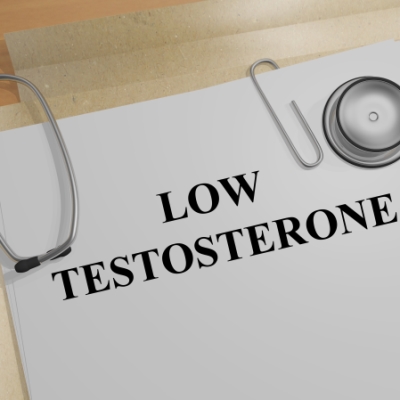HGH Deficiency Treatment in Adults
At any point in life, the pituitary gland can fail to produce enough growth hormone to fulfill the requirements of the growth hormone receptors. When that happens, a person will likely experience growth hormone deficiency. Also called human growth hormone, a decline in this vital chemical messenger can lead to many health and wellness issues. HGH deficiency treatment provides a supplemental supply of human growth hormones to the body.
There is never a time in a person’s life when they do not require human growth hormone. Once a child reaches adulthood and stops growing, HGH fulfills many other roles, including regulating metabolism, temperature, cell reproduction, libido, brain functions, and even emotions.
Doctors prescribe growth hormone deficiency treatment in adults once two things occur:
- A person experiences symptoms associated with HGH deficiency
- Blood test results show low growth hormone levels (via a measurement of insulin growth factor 1 levels)
If you are unfamiliar with HGH therapy, you may be wondering how growth hormone deficiency is treated. Pharmaceutical companies provide HGH in the form of an injection. Due to its molecular structure, that is the only approved way of getting human growth hormones into the body at this time. Other methods are currently still in the testing phases, as past trials have not yielded adequate results.
HGH deficiency treatment provides supplemental human growth hormones to make up for what the body no longer produces.
How Do Doctors Determine Who Needs HGH Deficiency Treatment?
When it comes to growth hormone deficiency treatment guidelines, need is a relatively subjective term. One person may not be bothered by the symptoms of HGH deficiency, while another one with the same growth hormone levels may find it difficult to function.
While there are specified guidelines for HGH deficiency treatment from the Endocrine Society, hormone specialists have leeway to interpret their findings based on the patient’s symptoms.
The current established guidelines for growth hormone deficiency adults treatment are as follows:
- Continued testing of patients who had been previously diagnosed with childhood-onset GH deficiency throughout adulthood if symptoms of low growth hormone levels are present. Not all adults will continue to need HGH therapy in their later years, yet some might.
- Adults diagnosed with head trauma, a tumor or disease in the pituitary gland or hypothalamus, or treatments such as surgery or radiation to the brain to treat a tumor or other issue that results in symptoms of HGH deficiency.
- Clinically diagnosed HGH deficiency for unknown reasons as shown in blood test, exam, and medical history reviews.
In some cases, the IGF-1 blood test, along with the other panels run by the doctor, may not provide a clear answer. At those times, it may become necessary to run an insulin tolerance test (ITT). The doctor may also order a growth hormone-releasing hormone (GHRH)-arginine test to diagnose HGH deficiency. If a tumor is suspected, the doctor may also run a Magnetic Resonance Imaging (MRI) scan or CT (CAT) Scan for further clarity in the diagnosis.
A hormone specialist will determine HGH deficiency treatment need based on symptoms, blood test results, and examination findings.
When Do You Need Treatment for HGH Deficiency?
No one can tell you a particular date or age when you should begin HGH deficiency treatment. As previously mentioned, this condition is highly subjective. Here is what you should know:
- HGH deficiency will not go away on its own; it will continue to worsen with time.
- Once growth hormone levels get significantly low, the body will have a hard time increasing production levels enough to make a difference, no matter what actions you take.
- In cases of borderline or pre-HGH deficiency, other treatment options exist which can boost growth hormone production in the pituitary gland. These therapies include sermorelin and ipamorelin injections.
- Once symptoms of low human growth hormone levels begin to impact your life, that is the time to begin
The time to begin HGH deficiency treatment is when symptoms of the decline start to interfere in your life.
What Are the Treatment Options for HGH Deficiency?
As we previously mentioned, the only real form of HGH deficiency treatment is injections. Some companies may try to sell drops, patches, pellets, sprays, gels, or other products they claim to be HGH therapy. Beware fraudulent sites or purveyors.
Growth hormone deficiency treatment options consist of the following:
- HGH in vials containing freeze-dried (lyophilized) HGH powder ready for reconstitution. Of all the ways of injecting HGH into the body, this provides the lowest
- Single dose individually filled syringes containing the prescribed dosage of HGH. Ten strengths are available so the doctor can customize the treatment to the individual. Because these syringes do not require refrigeration like many of the other brands of HGH, they are an excellent option for people on the go who travel frequently.
- Injector pens – there is a style for everyone. These are the most common types:
- All-in-one self-contained units that may feature the HGH already in a liquid state or may still require reconstitution of the lyophilized HGH powder. When the pen is empty, you discard it and open a new injector pen.
- Replaceable cartridges that are already premixed. You simply place a new one in the HGH injector pen, prime it, and it is ready for use.
- Replaceable cartridges that require reconstitution. Some of these products feature two-chamber systems where the medication mixes upon insertion into the pen unit. Others utilize a syringe of diluent to mix the lyophilized HGH powder before use.
Do not mistake other products that are not prescription injectable HGH for real human growth hormones. For further information about HGH deficiency treatment, please contact RX Hormone medical clinic for a free consultation.

